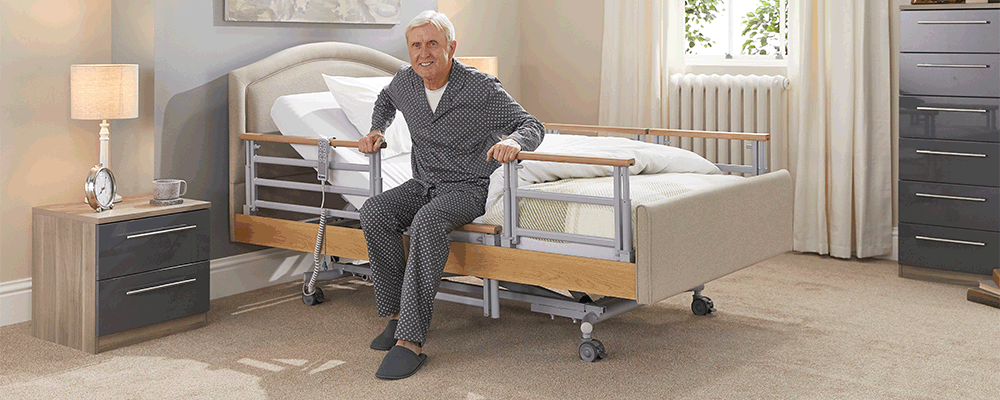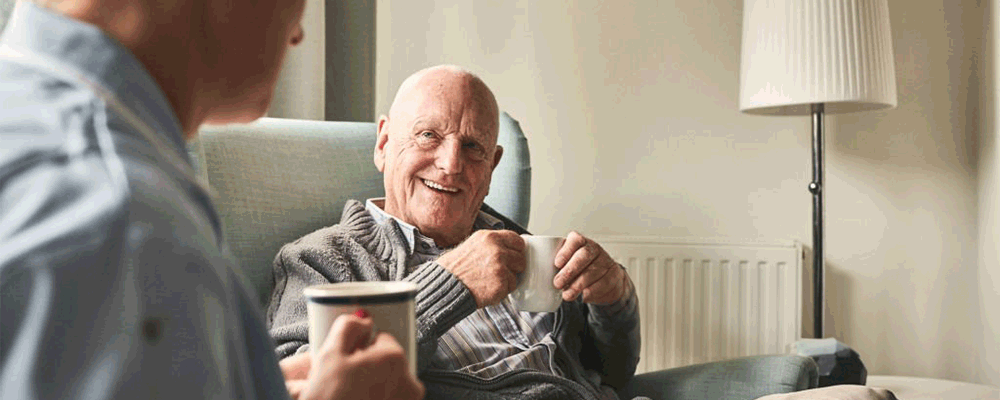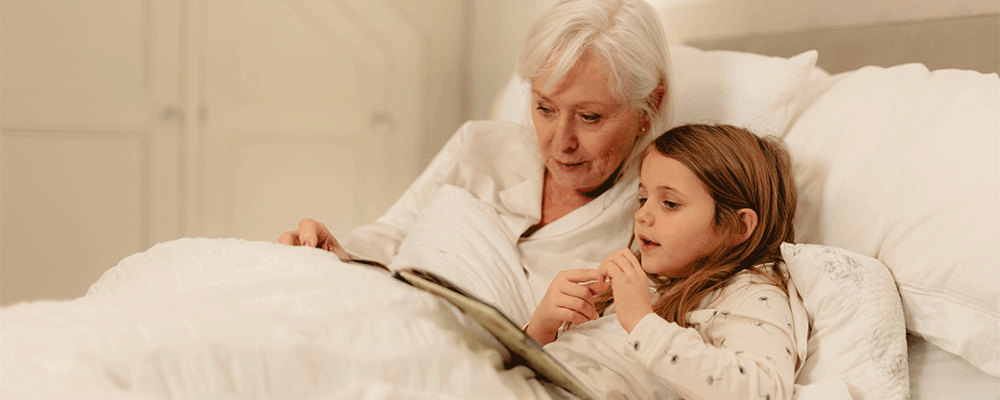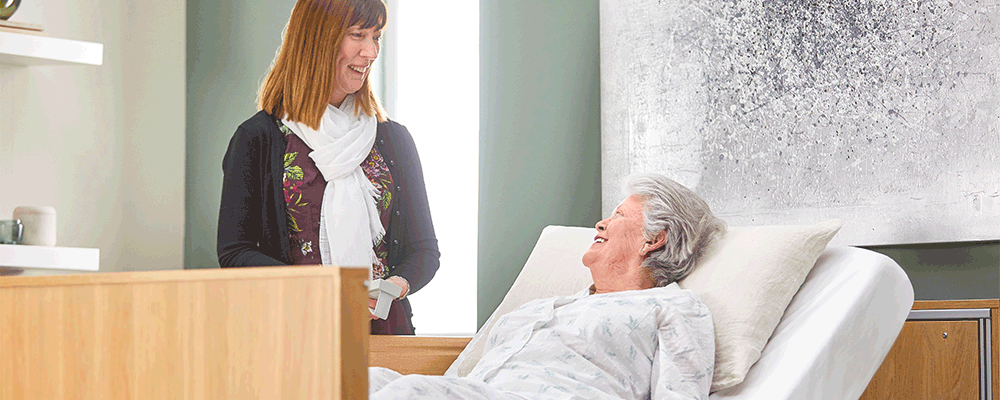1 in 5 people are currently giving unpaid support or care to someone, which includes those looking after an elderly loved one who needs their support. Caring for someone involves a wealth of different factors to consider – especially for those who are elderly and may not be as independent as they used to be.
As care needs progress or a change in health arises, ensuring your loved one has independence is key when it comes to their care and quality of life.
In this article we’ll explore the importance of promoting independence and well-being in elderly care. This includes understanding effective methods and practical solutions such as profiling beds, and how they support efficient care whilst helping loved ones remain independent.
The Importance of Independence in Elderly Care
Remaining independent allows older adults to feel a sense of accomplishment. Even if someone has limited mobility, disability, or health condition it’s important for them to gain a sense of purpose and fulfilment as much as they can.
Here are a few reasons why it’s key to keep your loved one’s as independent as possible:
Dignity and Self-Esteem
Independence preserves a sense of dignity and self-esteem. When seniors can maintain control over certain aspects of their lives, they are more likely to feel respected and valued.
Quality of Life
Independence contributes to a higher quality of life. It allows seniors to engage in activities they enjoy, make choices about their daily routines, and stay connected.

Physical Health
Remaining active and self-reliant can promote better physical health. Elderly people who continue to engage in tasks like light housework or even hobbies that require mobility are more likely to maintain their physical strength and endurance. It can also help against hypertension, poor circulation and maintain a healthy body weight.
Mental Well-Being
Independence also has positive effects in relation to mental health. Seniors who can make decisions and solve problems independently tend to experience lower levels of anxiety and depression.
Maintaining Cognitive Function
Engaging in activities that require mental effort, such as managing finances or planning daily schedules, can help preserve cognitive function and delay cognitive decline in some cases.
Autonomy in Decision-Making
Independence allows seniors to make choices about their care and lifestyle preferences. It ensures that their values and wishes are respected, fostering a sense of control over their own lives.
At Opera Beds, we support caregivers, whether that’s a family member or friend, in finding the best solution for the person being cared for. If you are looking to keep your loved one independent, here are a few methods to consider.
How to Promote Independence and Well-being in Elderly Care
Caring for someone else can be physically and emotionally challenging. Seniors are more likely to have age-related conditions, which can make it more difficult for them to engage in daily tasks by themselves.
Losing your independence is a difficult part of aging, with many seniors experiencing feeling frustrated and depressed. Being sure to encourage your loved one to remain independent can positively impact their quality of life.
Below are a few ways to do this:
Keeping them socialised
Ensuring your aging loved one remains socially interactive helps prevent isolation and loneliness. Spending time with family and friends encourages independence by maintaining relationships and brings companionship.

Making their environment safe
Everyday tasks and daily routines can be difficult for elderly people. If they have poor balance, limited mobility or poor visibility, seniors are at risk of falling and injuring themselves.
Many home adaptations focus on reducing fall risks and gives seniors independence and confidence. Investing in home adaptations and modifications such as installing ramps, grab rails and stairlifts, make it easier for seniors to move around independently. This increased accessibility enables them to perform daily activities without assistance.
Invest in a Profiling care bed
Profiling care beds are a great way to promote independence and well-being within elderly care. Unlike a regular bed, these specialised beds for the elderly have a range of features which make life easier:
- Enhanced Mobility and Independence: Profiling beds are adjustable, allowing seniors to change their position easily. They can sit up, raise their legs, or adjust the bed height independently, reducing the need for assistance with repositioning or getting in and out of bed.
- Improved Comfort and Sleep: Getting a quality night’s sleep is easier in a profiling bed. Users can find their perfect position which contributes to better sleep and emotional well-being.
- Enhanced Safety: Profiling beds often include side rails that can be raised or lowered. This feature enhances safety, reducing the risk of falls and injuries while providing support when seniors need it.
- Facilitates Self-Care: If you care for someone that’s elderly, profiling beds make it easier for them to perform self-care. For example, raising the back rest makes reading or eating more comfortable in bed which preserves their independence.
- Mobility and Rehabilitation: Profiling beds can be used in rehabilitation and mobility training. Users can participate in gentle exercises or physio on the bed more easily which helps with general well-being and mood.
- Assist with Daily Tasks: Changing the bed’s height makes it easier for elderly people to get in and out of bed. This aids in activities like transferring to a wheelchair or standing up to dress and groom.
- Long-Term Independence: Profiling beds are suitable for long-term use, making them an excellent investment in supporting seniors' independence as they age.
At Opera Beds, our talented team are on hand to find you the best solution for now and future care needs. For many, health conditions can progress so it’s essential that the right profiling bed will continue to make life easier for years to come.

If you’d like to discuss how an Opera bed can support your loved one, get in touch today.
How a Riser Recliner Chair Can Enhance Independence and Well-being
As well as a profiling care bed, another solution to encourage independence for the elderly is a riser recliner chair. These chairs can provide significant benefits, offering both practical support and improved quality of life. As we age, maintaining independence and comfort becomes increasingly important. At Opera Beds, our high-quality riser recliner chairs are designed to enhance comfort, safety and ease of use, helping elderly people to stay independence and relaxed in their own homes.
Benefits of a Riser Recliner Chair
- Easier Mobility
Getting in and out of a chair can be challenging for those with limited mobility. Our riser recliner chairs feature a smooth lifting mechanism that gently raises the chair to assist the user in standing up or sitting down. This reduces strain on joints and muscles, making everyday movements safer and more comfortable.
- Improved Comfort and Posture
A riser recliner chair is designed with ergonomic support in mind, offering multiple reclining positions to suit individual preferences. Whether you want to sit upright, recline slightly, or stretch out fully, our chairs provide optimal support for your back, neck, and legs, helping to alleviate aches and pains. They can also offer relief against conditions such as sciatica, where sitting can be uncomfortable or painful.
- Enhanced Circulation
For those who spend long periods sitting, poor circulation can be a concern. The elevated leg rest feature in our riser recliner chairs helps improve blood flow, reducing swelling in the legs and feet and promoting overall comfort.
- Independence and Confidence
A riser recliner chair empowers elderly individuals to move safely and independently, reducing the need for assistance from carers or family members. This can boost confidence and help maintain a sense of autonomy.
- Tailored to Your Needs
At Opera Beds, we understand that everyone’s needs are different. Our riser recliner chairs come in a variety of styles, sizes, and fabrics, ensuring you find the perfect fit for your home and lifestyle. From compact designs for smaller spaces to luxurious, real Italian leather options for added comfort, we have something for everyone.
Why Choose an Opera Riser Recliner Chair?
Our riser recliner chairs are crafted with quality and comfort in mind, offering features that make life easier for elderly individuals and their carers. With easy-to-use controls, durable construction, and stylish designs, our chairs are a practical and attractive addition to any home.
Our talented team can guide you to the perfect chair to suit your style and comfort. Get started with a no-pressure consultation today.
Provide choices for them
Providing choices for elderly people is crucial as it not only preserves their sense of dignity but also empowers them to maintain a level of autonomy and control over their lives. This autonomy directly impacts their emotional well-being, fostering a positive outlook and reducing feelings of helplessness.
Offering choices in various aspects of their daily routines not only enhances their overall quality of life but also respects their unique preferences and individuality. Giving choices can be incorporated into many ways, for instance at mealtimes or discussing where they’d like to visit. These grant a sense of purpose, reduce resistance to care, and create a more harmonious caregiving relationship.

Further support and advice if you provide care
Practicing self-care when caring for an elderly loved one is vital because it ensures that caregivers maintain their physical and emotional well-being, enabling them to provide the best possible support. It prevents caregiver burnout, reduces stress, and enhances patience and empathy.

Encouraging the independence and well-being of the elderly person not only respects their autonomy but also eases the caregiver's burden. By empowering seniors to be more self-reliant, caregivers can strike a balance between their responsibilities and personal needs, ultimately benefiting both themselves and the elderly individual they are caring for.








